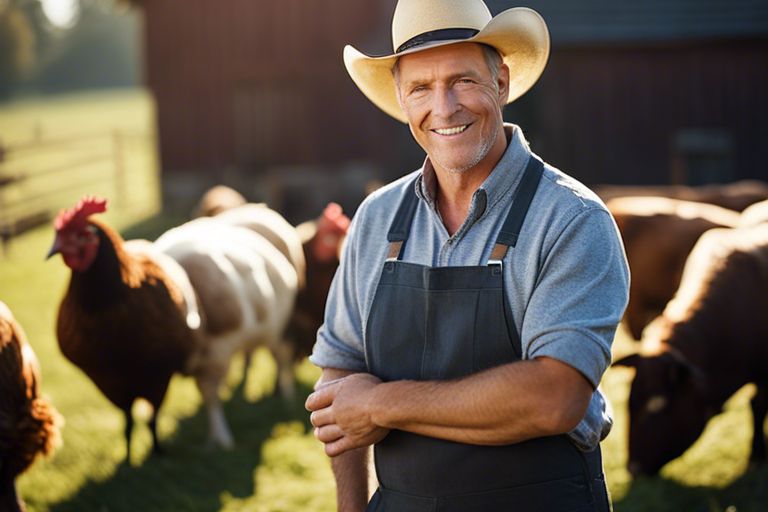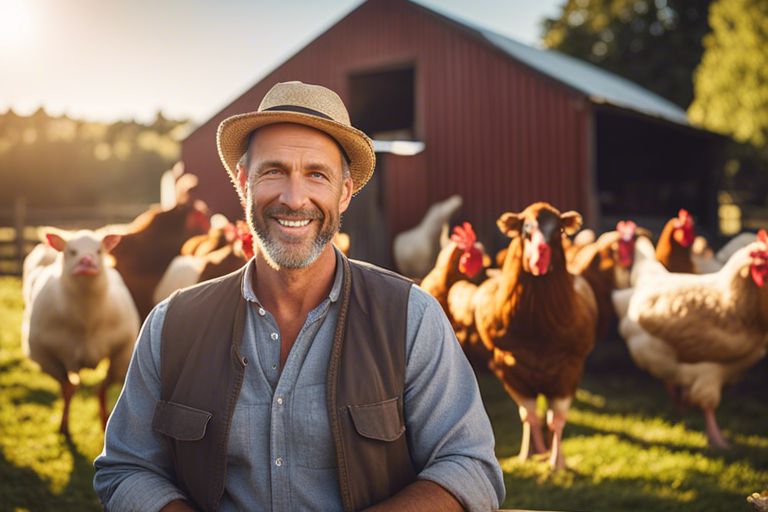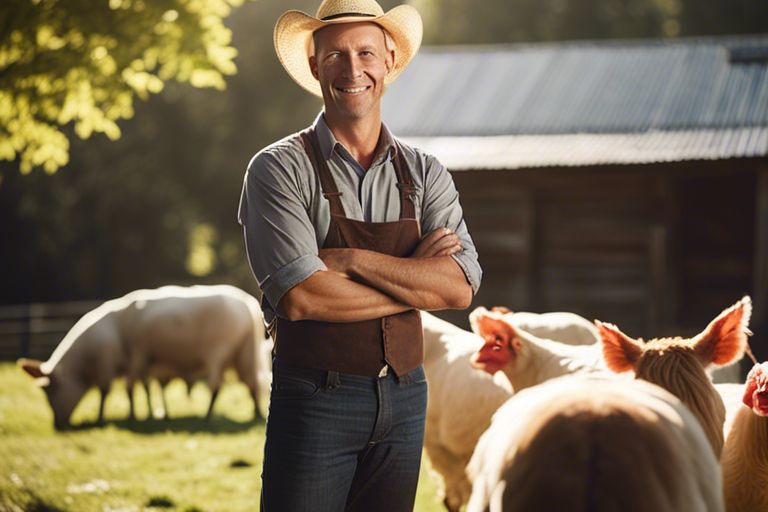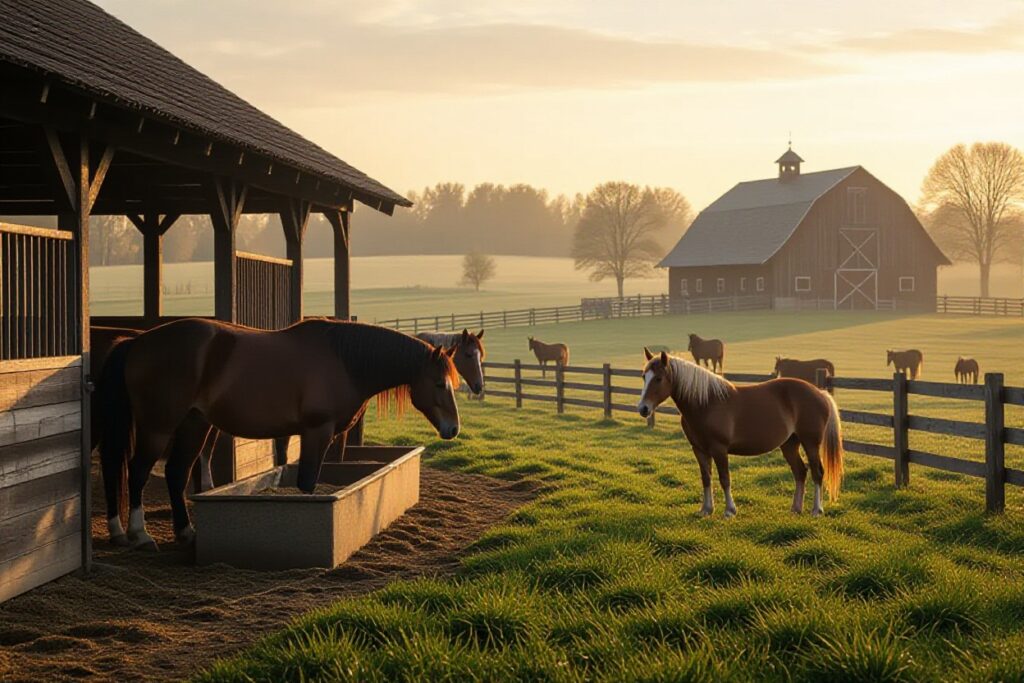Most aspiring livestock owners understand the importance of raising healthy and happy animals to ensure the success of their operation. Whether you’re raising chickens, cows, or goats, proper care and attention to their well-being is crucial for their overall health and productivity. In this blog post, we will provide valuable tips and advice on how to raise livestock breeds that are both healthy and content in their environment. By following these guidelines, you can ensure that your animals thrive and meet their full potential on your farm or homestead.

Optimal Nutrition for Livestock
Understanding Livestock Dietary Needs
Nutrition is a crucial aspect of raising healthy livestock. Different species have varying dietary requirements based on their age, breed, and purpose. It’s imperative to understand the specific nutritional needs of your livestock to ensure they are getting the right balance of nutrients for optimal growth, reproduction, and overall health.
Creating a Balanced Diet Plan
For livestock to thrive, a well-balanced diet is key. A proper diet should include a mix of proteins, carbohydrates, fats, vitamins, and minerals to support their metabolic functions and promote growth. Consult with a veterinarian or animal nutritionist to develop a customized diet plan tailored to your livestock’s specific needs.
Understanding the importance of each component in your livestock’s diet is vital to creating a balanced diet plan. Proteins are imperative for muscle development, carbohydrates provide energy, fats aid in nutrient absorption, while vitamins and minerals are crucial for overall health and wellbeing. By carefully selecting and combining different feed sources, you can ensure your livestock receive all the necessary nutrients for optimal health and productivity.

Housing and Environment Management
Designing Comfortable Livestock Shelters
Now, when it comes to designing comfortable livestock shelters, it is crucial to prioritize the well-being of your animals. Ensure that the shelters provide adequate ventilation, protection from extreme weather conditions, and enough space for the animals to move around freely. A well-designed shelter can help reduce stress and improve the overall health of your livestock.
Maintaining Cleanliness and Preventing Diseases
To maintain cleanliness and prevent diseases in your livestock, you must establish a routine cleaning schedule for their living areas. Regularly remove waste, such as manure and soiled bedding, to prevent the spread of bacteria and parasites. Additionally, provide clean water sources and ensure that feeding areas are kept tidy to minimize the risk of contamination.
Cleanliness: Proper sanitation is key to preventing the spread of diseases among your livestock. Regularly disinfecting water troughs, feeding equipment, and living quarters can help reduce the risk of infections. Consider implementing biosecurity measures to limit the introduction of pathogens onto your farm and consult with a veterinarian for advice on disease prevention strategies.

Livestock Health Care Practices
Routine Veterinary Check-ups and Vaccinations
Vaccinations play a crucial role in preventing various diseases in livestock. Regular veterinary check-ups ensure that your animals are healthy and up-to-date on necessary vaccinations. Vaccines can protect livestock breeds from common illnesses and help maintain their overall well-being. Consult with your veterinarian to create a vaccination schedule tailored to the specific needs of your livestock.
Identifying and Treating Common Ailments
Ailments like respiratory infections, hoof problems, and parasitic infestations are common in livestock. Early detection is key in preventing these issues from escalating. Regularly monitor your animals for signs of illness such as changes in behavior, appetite, or physical appearance. Consult with your veterinarian to develop a treatment plan if an ailment is suspected. Prompt intervention can help alleviate discomfort and prevent the spread of disease within your herd.
Understanding: Familiarize yourself with common ailments specific to the livestock breeds you raise. Educate your staff on symptoms to watch for and how to administer basic first aid. Keep a well-stocked medical kit on hand for immediate treatment of minor injuries or illnesses. By staying proactive and attentive to your animals’ health, you can ensure a higher quality of life for your livestock breeds.
Mental Well-being and Social Interaction
Importance of Mental Health in Livestock
With the growing awareness of animal welfare, it is crucial to prioritize the mental health of livestock. Just like humans, animals experience emotions and stress, which can impact their overall well-being and productivity.
Enrichment Activities and Social Behavior
The mental well-being of livestock can be enhanced through enrichment activities and social interactions. Providing opportunities for them to engage in natural behaviors and socialize with other animals can reduce boredom, decrease stress, and promote overall happiness.
Another effective way to improve the mental health of livestock is by creating an environment that stimulates their natural instincts. This can include providing toys for them to play with, introducing new objects or obstacles for exploration, and setting up spaces where they can interact and bond with their herd mates.
Breeding and Genetic Health
Responsible Breeding Practices
To ensure the health and well-being of your livestock breeds, responsible breeding practices are paramount. It is necessary to carefully select breeding pairs based on their genetic health, temperament, and conformation. Avoid breeding animals that carry hereditary diseases or genetic defects, as this can lead to serious health issues in offspring. Regular health screenings and consultations with veterinarians can help you make informed decisions when it comes to breeding.
Preserving Genetic Diversity and Vigor
To maintain the vitality and resilience of livestock breeds, preserving genetic diversity is crucial. By avoiding excessive inbreeding and incorporating unrelated genetic lines, you can prevent the accumulation of harmful recessive traits and promote overall vigor in the population. Consider participating in breed conservation programs and genetic testing to ensure that your livestock breeds remain diverse and healthy for future generations.
Genetic diversity plays a key role in the long-term sustainability of livestock populations. By actively managing and preserving genetic variability, breeders can help prevent the loss of valuable traits and adaptability to changing environmental conditions. Introducing new genetic material through controlled outbreeding can also enhance the overall fitness and adaptability of livestock breeds, ensuring their continued success in the face of evolving challenges.
Final Words
Conclusively, raising healthy and happy livestock breeds requires a combination of proper nutrition, adequate space, regular veterinary care, and attention to their physical and mental well-being. By implementing the tips mentioned above, livestock owners can ensure their animals lead a fulfilling life while also yielding high-quality products. Do not forget, a well-cared-for animal is not only beneficial for the livestock but also for the overall success of your farming operation. So, take heed of these suggestions and watch as your livestock thrive under your care.
FAQ
Q: Why is it important to raise healthy livestock breeds?
A: Raising healthy livestock breeds is necessary for ensuring the well-being of the animals and maintaining a sustainable farming operation.
Q: What are some tips for promoting the health of livestock breeds?
A: Provide a balanced diet, access to clean water, proper shelter, and regular veterinary care to promote the health of livestock breeds.
Q: How can I ensure the happiness of my livestock breeds?
A: To ensure the happiness of your livestock breeds, provide them with a comfortable environment, opportunities for socialization, and enriching activities.
Q: What are some common health issues seen in livestock breeds?
A: Common health issues seen in livestock breeds include parasites, infectious diseases, nutritional deficiencies, and reproductive problems.
Q: How can I prevent health problems in my livestock breeds?
A: Prevent health problems in livestock breeds by implementing a robust biosecurity program, practicing good hygiene, and conducting regular health screenings.
Q: What role do genetics play in raising healthy livestock breeds?
A: Genetics play a significant role in determining the health and productivity of livestock breeds. Selecting animals with desirable traits and avoiding inbreeding can help maintain healthy genetic diversity.
Q: How can I monitor the health and happiness of my livestock breeds?
A: Monitor the health and happiness of your livestock breeds by conducting regular health checks, observing their behavior and performance, and consulting with a veterinary professional when needed.











